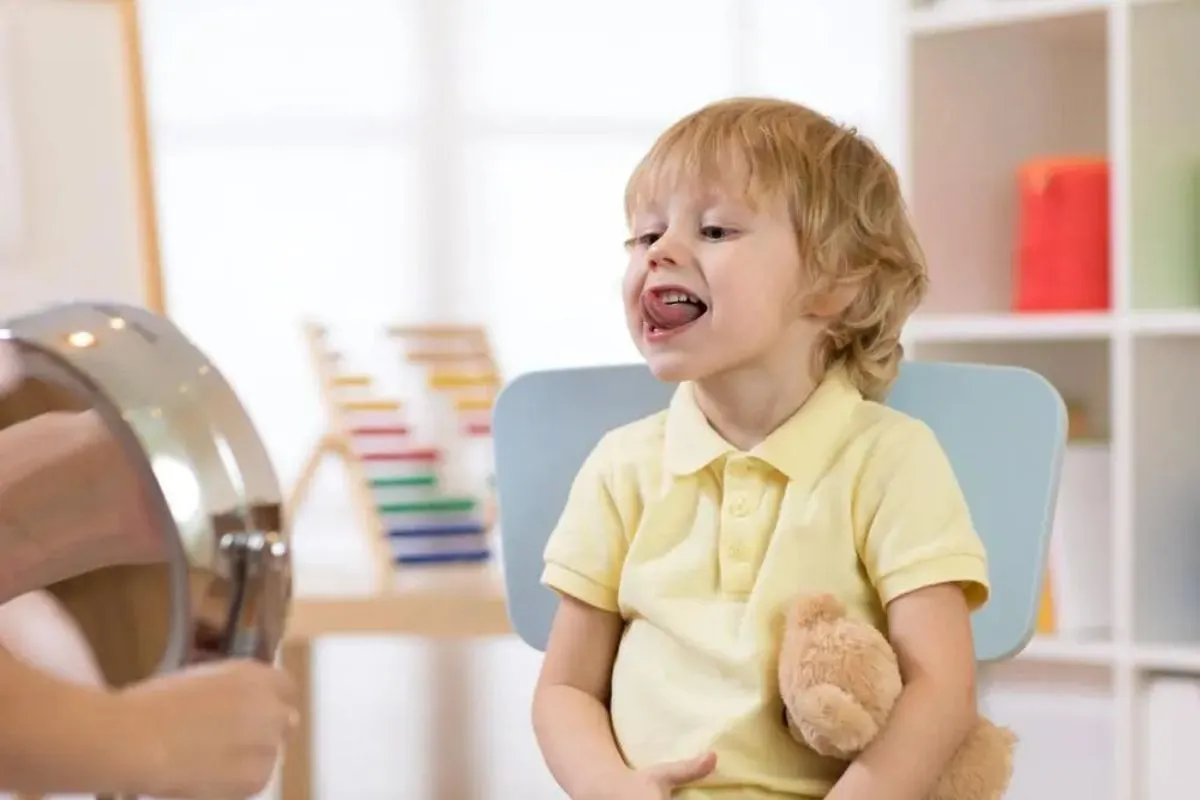That Little Voice You’re Waiting For
Ever find yourself mid-dinner, watching your toddler play with their peas more than their toys, and thinking, “Why aren’t they talking like other kids?” You’re not alone. It creeps in quietly at first, an almost imperceptible worry, and then suddenly, it’s hard to shake.
Maybe they say a word here or there. Maybe they babble, hum, point, or gesture, but sentences? Not yet. And yet, you see friends’ kids chatting away, ordering imaginary pizzas, or repeating funny phrases. The comparison is natural, almost impossible not to do, but it’s worth pausing. Every toddler has their own rhythm.
And yes, sometimes you need a little help to make sure your child’s voice is heard clearly, confidently, and safely. That’s where pediatric speech therapy comes in, not to fix your child, but to support them in finding their words at their own pace.
Milestones: What Most Toddlers Do (Roughly)
Here’s the thing about speech milestones, they’re guides, not rules. Kids may be a month or even six months ahead or behind and still be perfectly healthy.
12–18 Months:
Babbling with intention, using a few words, maybe saying “mama” or “dada,” and pointing or waving to get attention. Every little sound counts.
18–24 Months:
Vocabulary tends to grow to around 50 words. Simple two-word combinations pop up, “more juice,” “go park”, and it’s thrilling when you hear that first phrase that actually makes sense.
2–3 Years:
This is the “language explosion” phase. Three- and four-word sentences, repeated questions, storytelling attempts, even if half of it sounds like jibber-jabber to anyone but you.
Remember, these are averages. Some kids surprise you by saying full sentences at 2, others are content babbling a bit longer, and that’s okay.
When to Peek Behind the Curtain: Red Flags
Some patterns are worth noticing, even if they don’t scream “emergency.” Think of them as gentle nudges suggesting it might be helpful to reach out to a best pediatric speech therapist.
- No Words by 18 Months: Some toddlers just take their time, but zero words could be a sign.
- Missing Gestures: Pointing, waving, showing things, these small acts of communication are often early clues.
- Lost Skills: If your child was saying a few words and then stops, pay attention.
- Trouble Following Directions: Not picking up on simple instructions? A speech specialist can guide support.
- Limited Sounds: If consonants or sounds are missing repeatedly, it may slow language acquisition.
- Frustration: Getting upset often because they can’t be understood? That emotional piece matters too.
These aren’t meant to alarm you. They’re checkpoints, moments to pause, observe, and decide if professional insight would help.
Little Things You Can Do at Home
You don’t need a clinic to make progress. Daily interactions are powerful.
Narrate Your Day: “I’m washing your hands. We’re putting on socks.” The words sink in, and your child absorbs more than you’d think.
Read Together: Even ten minutes. Point, name, and respond. Let the story flow naturally. Questions like “What’s this?” can wait; start with labeling instead.
Imitate Playfully: Copy their sounds, gestures, and facial expressions. They learn through mirroring. Plus, it’s fun.
Sing, Rhyme, Clap: Music, rhythm, and rhyme are sneaky helpers, they make sounds memorable and encourage repetition.
No Pressure: Avoid testing or quizzing. Instead, offer words as companions: “That’s a cat!” instead of “Say cat.”
These small, consistent moments lay a foundation before, during, and after speech therapy for toddlers.
What Pediatric Speech Therapy Looks Like
When you finally call, schedule, or search pediatric speech therapy near me, don’t expect a rigid program.
Sessions are playful, observational, and often brief, but the impact is steady. The therapist watches, listens, and gently guides. There might be games, picture books, songs, or pretend play. Sometimes exercises are tucked into daily routines, dressing, snack time, bath time, so progress doesn’t feel clinical.
Therapy isn’t a “fix.” It’s a partnership. You, your child, and the therapist work together, experimenting with sounds, gestures, and comprehension strategies. Over time, it builds confidence, independence, and real-world communication skills.
Why Early Intervention Matters
Early intervention isn’t just jargon, it’s a real difference-maker. Kids who get support early often navigate frustration better, interact more with peers, and develop skills without delays turning into bigger gaps.
The earlier you address concerns, the more natural progress feels. Speech therapy isn’t about forcing words. It’s about opening doors so your child can explore, experiment, and find their voice in a safe, encouraging space.
Choosing the Right Pediatric Speech Therapist
Credentials matter, but personality matters more. A great therapist for toddlers:
- Makes sessions fun, flexible, and playful.
- Engages parents as partners, not bystanders.
- Tailors strategies to real-life situations, not just drills.
- Knows when to encourage, when to wait, and how to celebrate tiny victories.
The therapist’s ability to connect with your child often matters as much as their training. Comfort fosters communication. Confidence grows from feeling understood.
Everyday Wins That Matter
Progress in toddlers isn’t always dramatic, it’s subtle, messy, and magical.
- First clear “mama” or “dada” in weeks of practice.
- Following instructions without repeated prompts.
- Combining gestures and words naturally.
- Laughing at shared stories or imaginary play, fully understood.
Each step, tiny or large, is meaningful. And sometimes, the journey itself becomes a learning and bonding experience for the whole family.
Trust Your Instincts
Parents know their child best. If your intuition nudges you toward action, search pediatric speech therapy near me and schedule a session.
Speech therapy isn’t about rushing a child or meeting arbitrary milestones. It’s about support, guidance, and confidence. Your child’s voice is unique, and every effort you make now pays off for years to come.
Wrapping Up
Language shapes life. Every sound, word, and gesture contributes to connection, confidence, and understanding. With pediatric speech therapy, you’re giving your child tools, not just for now, but for a lifetime of communication.
The path may have small steps, occasional pauses, and even detours. That’s okay. What matters is that you start, observe, and celebrate the journey.
Your child’s voice matters. And with the right support, it will grow, flourish, and shine, on their terms.



